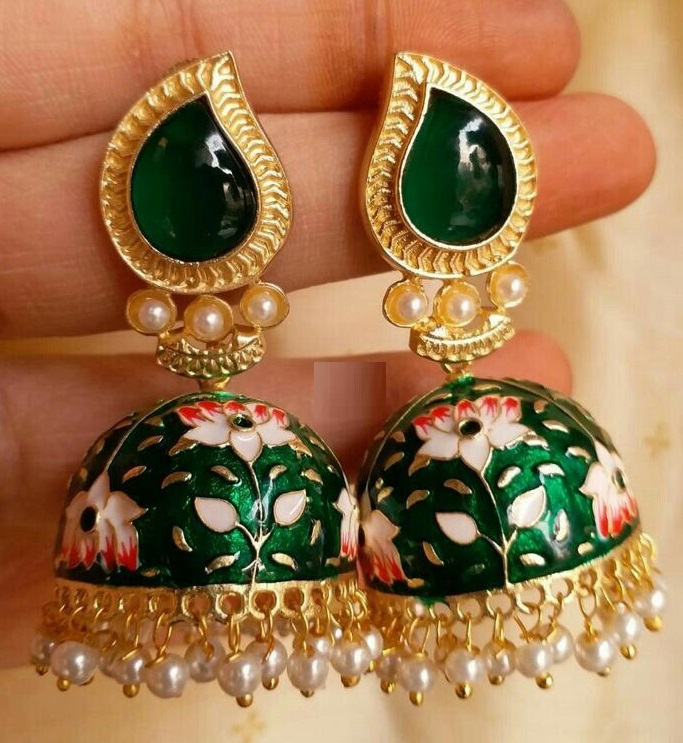SIGN UP FOR NEWSLETTER
Be the First to Know. Sign up to newsletter today

Meenakari Jewellery has a metal surface that is coloured by fusing attractive enamel colours. For instance, it is enamel work on metal and is very popular in Rajasthan. Further, this craft flourished in Persia and was brought to India by the Mughals. Above all, “Mina” refers to the blue skies in Persian.
Available at Jaipur:- Shri Jewellers(Jaipur), Suranas(Jaipur), Birdhichand Ghanshyamdas Jewellers
For instance, you have to look at the reverse side of a Polki necklace to see the beauty of Meenakari work done there. You are likely to mistake that the Polki diamond is on the reverse side because the vibrant colours and designs in Meena work is simply stunning. Therefore, it was also known as reversible jewellery. It is believed that Raja Mansingh of Amer introduced this jewellery craft in Rajasthan.
In addition to jewellery, home decor objects made with metal are decorated with Meenakari work.
Meena or Mina is the colouring of the surface by mixing brilliant colours of enamel. For instance, powdered glass is fused together by firing, usually between 750 and 850 degrees Celsius. The molten powdered glass (enamel) is further coated on the metal. Finally, the designer traces and engraves the design on the metal. The enamel is then applied on to it as per the design. Hence, it is an intricate craft. It is best does on gold metal.
Jewellery, Jewellery boxes, vases, trays and idols are done with Meenakari work.
Gulabi Mina uses a dominant pink colour, Panchrangi Mina uses 5 colours-Blue, green white, red and pink and ek rang Mina uses a single colour. Varanasi has a lot of Gulabi Meenakari work.
Be the First to Know. Sign up to newsletter today
471 views